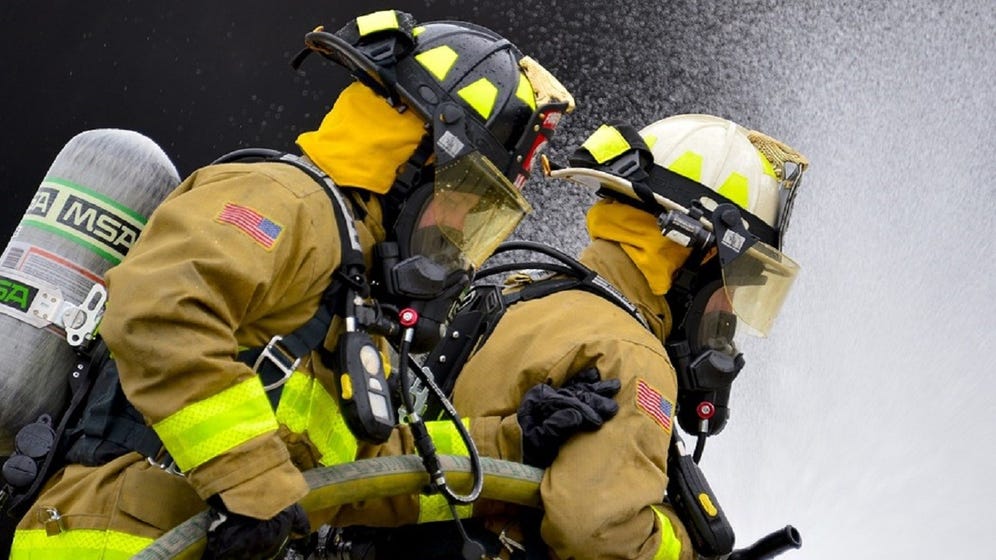April 12, 2021
 Running into a burning building isn’t the only major threat firefighters face. Men and women on the frontlines of America’s fire departments often are exposed to toxic smoke, asbestos and other chemicals and substances that may increase their cancer risk. As a result, these first responders are diagnosed with cancer at a higher rate than the general population, according to a 2017 study by the National Institute for Occupational Safety and Health (NIOSH).The study found that firefighters have a 9 percent higher risk of being diagnosed with cancer and a 14 percent higher risk of dying from cancer than the general public most Americans.
To help track cancer cases among firefighters, Congress recently passed the Firefighter Cancer Registry Act, requiring the U.S. Centers for Disease Control and Prevention to develop a database of cancer cases, to help health professionals better understand firefighters’ risk and investigate how to mitigate it.
“A national database may provide a broader understanding of the trends associated with why, how and when firefighters are contracting cancer,” says Maurie Markman, MD, President of Medicine & Science at Cancer Treatment Centers of America® (CTCA). “Establishing a national cancer registry was the first step to building a database where health experts can study the factors associated with cancer diagnoses in the firefighting community. Hopefully, through this registry, researchers can develop more sophisticated protocols and safeguards to reduce the number of firefighters being diagnosed with cancer.”
In its research, which concluded in 2015, the NIOSH studied 30,000 career firefighters who worked between 1950 and 2009 in Chicago, Philadelphia and San Francisco. Among its conclusions, the institute found:
Running into a burning building isn’t the only major threat firefighters face. Men and women on the frontlines of America’s fire departments often are exposed to toxic smoke, asbestos and other chemicals and substances that may increase their cancer risk. As a result, these first responders are diagnosed with cancer at a higher rate than the general population, according to a 2017 study by the National Institute for Occupational Safety and Health (NIOSH).The study found that firefighters have a 9 percent higher risk of being diagnosed with cancer and a 14 percent higher risk of dying from cancer than the general public most Americans.
To help track cancer cases among firefighters, Congress recently passed the Firefighter Cancer Registry Act, requiring the U.S. Centers for Disease Control and Prevention to develop a database of cancer cases, to help health professionals better understand firefighters’ risk and investigate how to mitigate it.
“A national database may provide a broader understanding of the trends associated with why, how and when firefighters are contracting cancer,” says Maurie Markman, MD, President of Medicine & Science at Cancer Treatment Centers of America® (CTCA). “Establishing a national cancer registry was the first step to building a database where health experts can study the factors associated with cancer diagnoses in the firefighting community. Hopefully, through this registry, researchers can develop more sophisticated protocols and safeguards to reduce the number of firefighters being diagnosed with cancer.”
In its research, which concluded in 2015, the NIOSH studied 30,000 career firefighters who worked between 1950 and 2009 in Chicago, Philadelphia and San Francisco. Among its conclusions, the institute found:
 Back to Firewire
Next Post
Back to Firewire
Next Post
